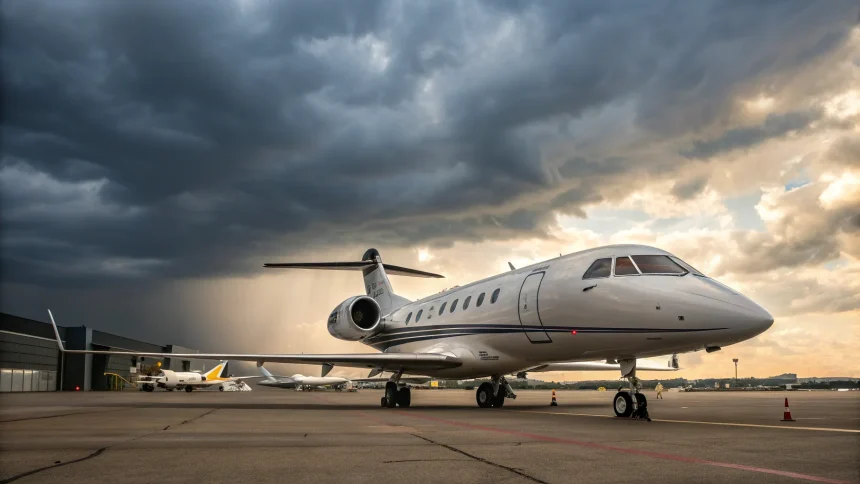Dassault Aviation SA is experiencing a significant downturn in orders for its Falcon business jets, with bookings falling to their lowest level in five years. This decline comes amid mounting concerns over potential tariffs that are disrupting the company’s assembly operations and deterring potential customers.
The French aerospace manufacturer, known for both its military and business aircraft, is facing challenging market conditions as trade tensions create uncertainty in the luxury aviation sector. The drop in orders represents a concerning trend for a company that has historically maintained a strong position in the high-end business jet market.
Tariff Threats Disrupt Production
The primary factor behind the declining orders appears to be the looming threat of tariffs. These potential trade measures are causing two significant problems for Dassault: delays in the assembly process and hesitation among prospective buyers.
Assembly delays are particularly problematic for an industry where production schedules are carefully planned months or even years in advance. With components and materials coming from global supply chains, the uncertainty surrounding tariffs has forced Dassault to adjust its manufacturing timelines, potentially increasing costs and extending delivery windows.
For customers, the prospect of additional tariffs creates financial uncertainty that makes large purchases like business jets less attractive. A business jet represents a major capital investment, and the possibility of unexpected tariff-related price increases has led many potential buyers to postpone their decisions.
Market Impact and Industry Context
The five-year low in orders comes at a time when the broader business aviation sector has shown mixed signals. While some segments of the market have demonstrated resilience, the high-end segment where Dassault’s Falcon jets compete has proven more vulnerable to economic and political uncertainties.
The Falcon family includes several models designed for different range capabilities and passenger capacities, with prices typically ranging from approximately $26 million to $58 million depending on the specific configuration. These aircraft compete directly with offerings from Bombardier, Gulfstream, and Embraer in the premium business jet category.
Key factors affecting the market include:
- Global trade tensions creating uncertainty for international buyers
- Potential for increased costs due to tariffs on imported materials and components
- Concerns about delivery timelines as assembly processes face disruption
Strategic Challenges for Dassault
For Dassault Aviation, the decline in Falcon orders presents both immediate financial challenges and longer-term strategic questions. Business jets typically provide steady revenue and healthy profit margins for aerospace manufacturers, making them an important complement to military contracts that may be more cyclical.
The company now faces decisions about production rates, workforce management, and potential pricing strategies to stimulate demand despite the tariff concerns. Analysts will be watching closely to see if Dassault implements special incentives or financing options to overcome buyer hesitation.
Industry experts suggest that Dassault may need to focus on markets less affected by the current tariff disputes or emphasize the long-term value proposition of their aircraft to overcome short-term pricing uncertainties.
The situation highlights how global trade disputes can have specific impacts on high-value manufacturing sectors where purchases are discretionary and sensitive to economic confidence. Until there is greater clarity on the tariff situation, Dassault may continue to see pressure on its business jet division.
As the company navigates these challenges, its performance will serve as an indicator of how luxury aviation markets respond to trade tensions and economic uncertainty in the months ahead.









